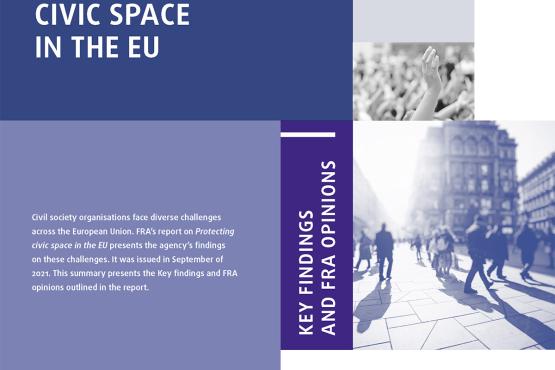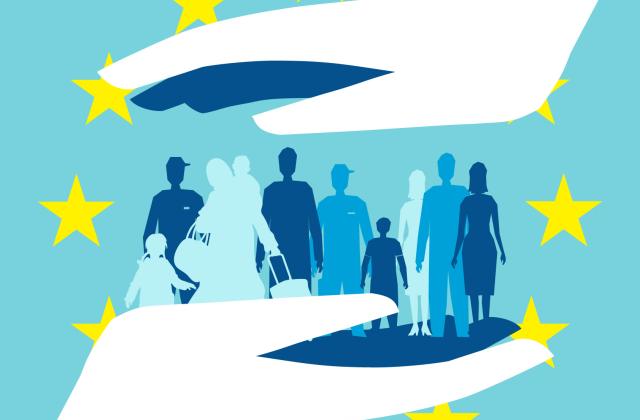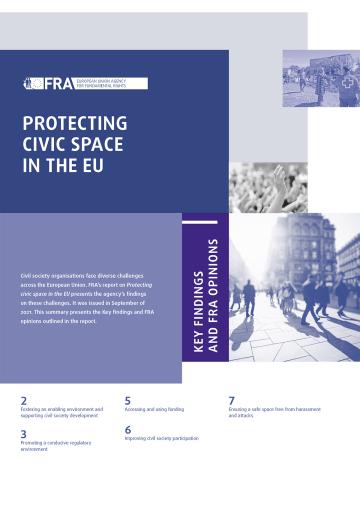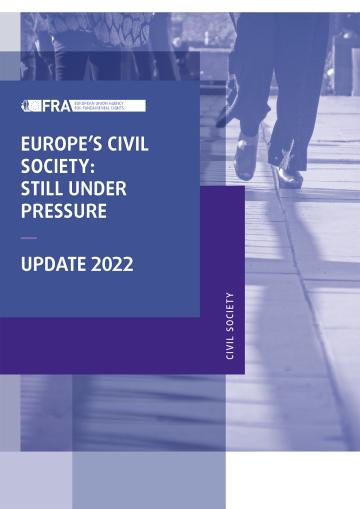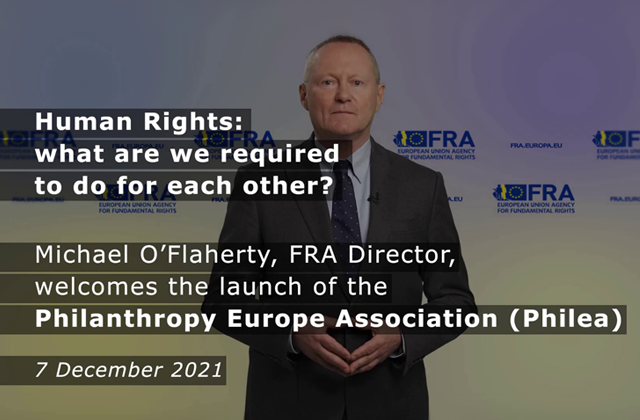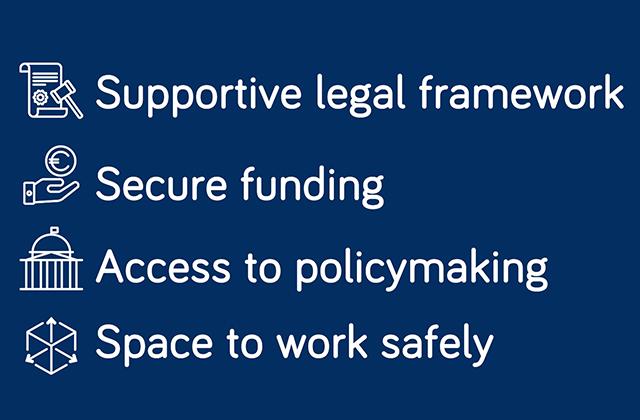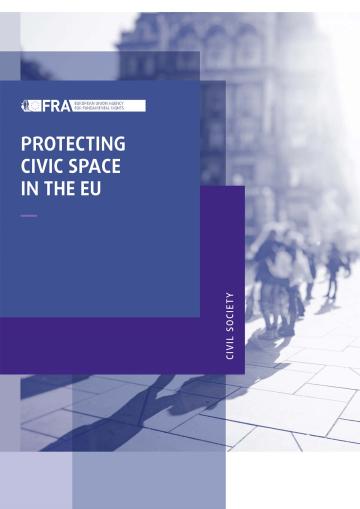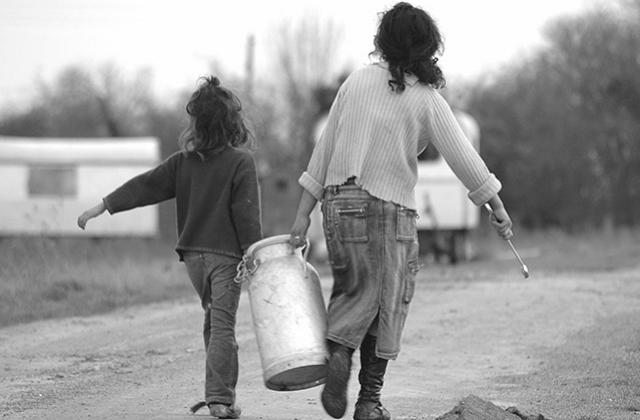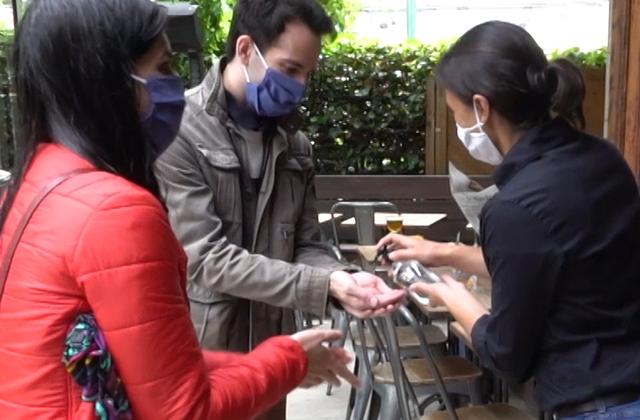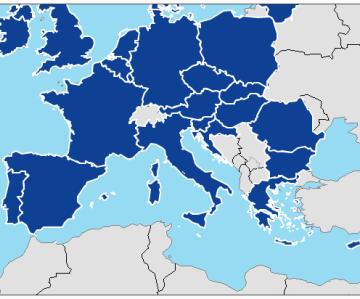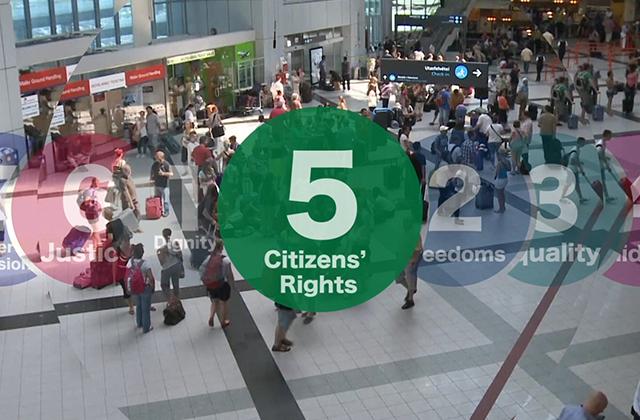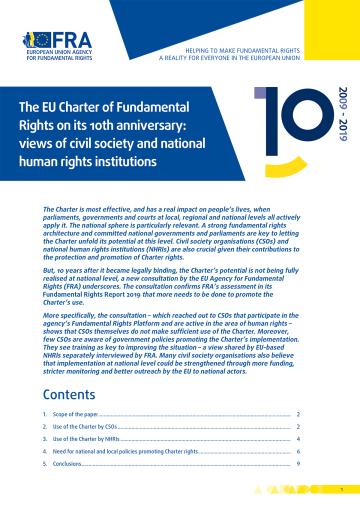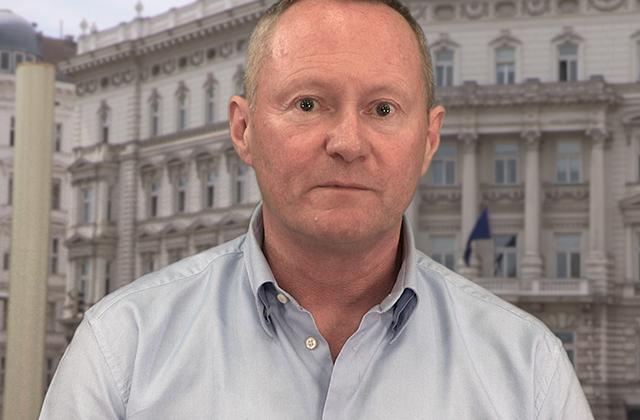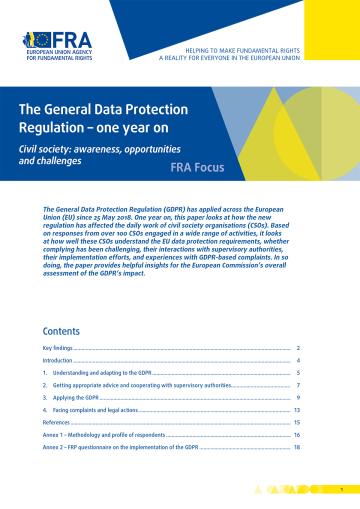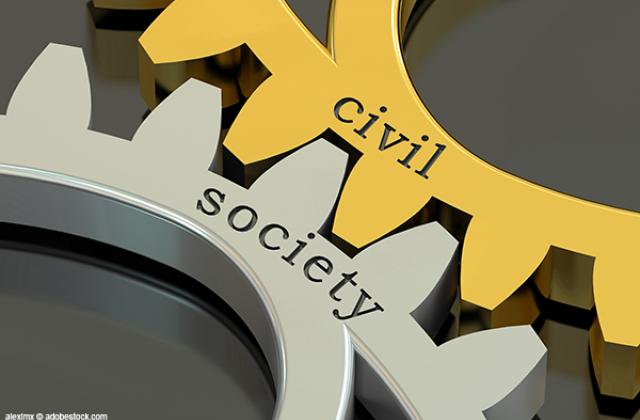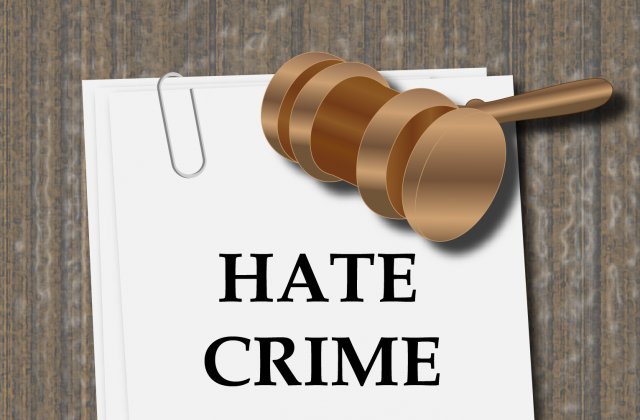Civilsamfundet
Highlights
- VideoThis FRF theme examines key challenges such as tackling disinformation, widening participation, protecting protests, sustaining civil society, ensuring political transparency, safeguarding institutions, and resisting the erosion of fundamental rights. Notable speakers include Emily O'Reilly, former European Ombudsman, Didier Reynders, former EU Commissioner for Justice, Alma Zadić, Austria's former Federal Minister of Justice, and Lilian Thuram, President of the Lilian Thuram Foundation - Education against racism, among others.
- Periodic updates / Series18October2023Civil society organisations struggle to maintain an environment safe from threats and attacks. FRA’s sixth annual update on civic space explores the challenges for organisations across the EU. While there has been significant development since FRA began monitoring the situation in 2018, civil society organisations remain under immense pressure. Abusive lawsuits and attacks against those involved in migrant search and rescue at sea are just some of the challenges identified. This report presents ways forward to protect civil society and human rights.
- Report / Paper / Summary19July2022Civil society is a key component of Europe’s fundamental rights architecture. From supporting people affected by the pandemic to helping those fleeing the war in Ukraine, civil society plays a crucial role in upholding people’s rights. In so doing, it contributes to a healthy rule of law culture. FRA’s civic space report provides an overview of the many ways in which civil society contributes to the checks and balances that underpin the rule of law.
- Report / Paper / Summary19August2022Civilsamfundsorganisationer står over for forskellige udfordringer overalt i Den Europæiske Union. Med sin rapport Protecting civic space in the EU fremlægger FRA sine konklusioner om disse udfordringer. Rapporten blev fremlagt i september 2021. Dette er et sammendrag af hovedresultaterne og FRA’s udtalelser i rapporten.




